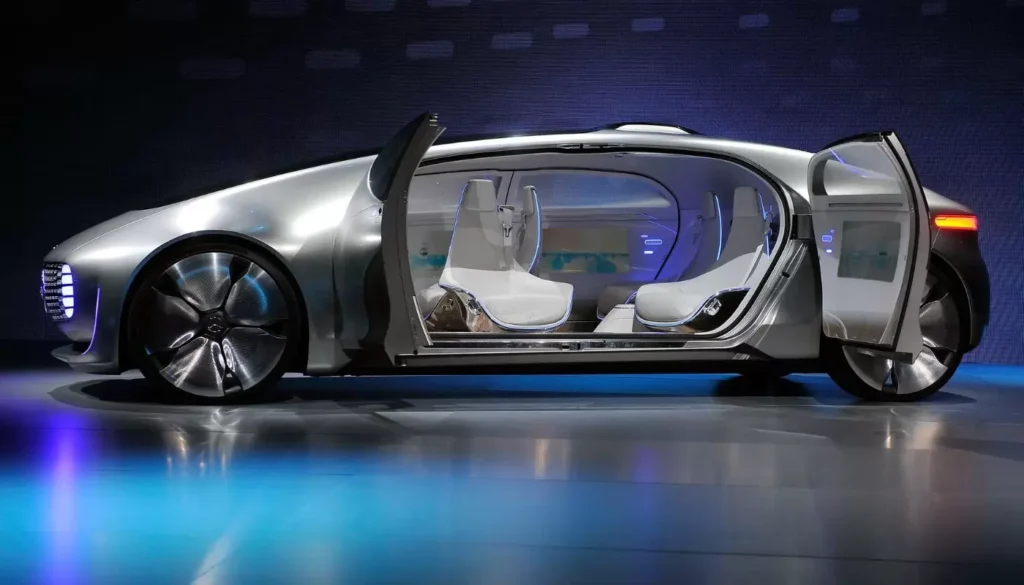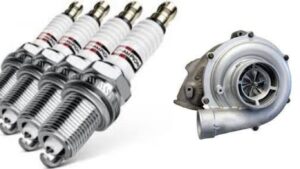In today’s fast-paced world, getting behind the wheel of your dream car is more than just a luxury—it’s often a necessity. But when it comes to vehicle financing, the choices can be as numerous as the models on a dealership lot.
Two popular options that frequently rev up debate are novated leases and car loans. Each comes with its own set of advantages, potential pitfalls, and financial implications. So, buckle up as we take a deep dive into the world of novated leases vs car loans, exploring every twist and turn to help you make the best choice for your financial journey.
Understanding Novated Leases: The Road Less Traveled
A novated lease is a unique three-way agreement between an employee, their employer, and a finance company. It’s an employee benefit that’s gained traction in some countries, though it’s less common in the USA. Here’s how it typically works:
- The employee chooses a vehicle they want to lease.
- The employer agrees to take on the lease payments, deducting them from the employee’s salary.
- The finance company provides the vehicle and manages the lease.
What makes a novated lease stand out is its potential for tax savings. Payments are often made with pre-tax income, which can lower the employee’s taxable income. This arrangement can lead to significant savings, especially for those in higher tax brackets.
The Mechanics of a Novated Lease
Let’s break down the components of a novated lease:
- Lease payments: Cover the depreciation of the vehicle over the lease term.
- Running costs: Often bundled into the lease, including insurance, maintenance, and fuel.
- Fringe Benefits Tax (FBT): A tax imposed on employers for providing certain benefits to employees.
A novated lease can be a powerful tool for employees looking to maximize their salary packaging options while enjoying a new vehicle, says financial advisor Jane Doe.
The Nitty-Gritty of Car Loans: The Familiar Route

A car loan is a more traditional financing option that most Americans are familiar with. It’s a straightforward agreement between a borrower and a lender, where the lender provides the funds to purchase a vehicle, and the borrower agrees to repay the loan amount plus interest over a set period.
Key Features of Car Loans
- Ownership: The borrower owns the vehicle outright once the loan is paid off.
- Repayment terms: Typically range from 36 to 72 months.
- Interest rates: Can be fixed or variable, affecting the total cost of the loan.
- Secured vs. Unsecured: Most car loans are secured by the vehicle itself, leading to lower interest rates.
Crunching the Numbers: Novated Lease vs Car Loan
To truly understand the financial implications of each option, let’s break down the costs:
| Aspect | Novated Lease | Car Loan |
| Upfront Costs | Generally lower | Down payment often required |
| Monthly Payments | Can be lower due to tax benefits | Typically higher |
| Tax Implications | Potential for significant savings | Limited tax benefits |
| Ownership | Lease company owns the vehicle | Borrower owns the vehicle |
| Depreciation | Not directly borne by the employee | Directly affects the owner |
Case Study: The Corporate Climber
Meet Sarah, a 35-year-old marketing executive earning $80,000 per year. She’s considering a $30,000 vehicle and weighing her options:
Novated Lease:
- Monthly payment: $600 (including running costs)
- Tax savings: Approximately $200 per month
- Net cost: $400 per month
Car Loan:
- Monthly payment: $550
- No tax savings
- Net cost: $550 per month
In this scenario, the novated lease appears more favorable, saving Sarah $150 per month. However, she doesn’t own the vehicle at the end of the term.
Pros of Novated Leases: The Hidden Gems
- Tax Benefits: The most significant advantage, potentially reducing taxable income.
- Bundled Costs: Simplifies budgeting by including running costs in one payment.
- Fleet Discounts: Access to better deals through bulk purchasing power.
- Reduced Admin: Employer handles much of the paperwork and payments.
Cons of Novated Leases: The Speed Bumps
- Limited Availability: Not widely offered in the USA.
- Mileage Restrictions: Exceeding limits can result in penalties.
- Job Loss Complications: Changing employment can disrupt the lease arrangement.
- Lack of Ownership: You don’t own the vehicle unless you buy it at lease-end.
Advantages of Car Loans: The Straight Road
- Full Ownership: The vehicle is yours once the loan is paid off.
- No Mileage Limits: Drive as much as you want without penalties.
- Modification Freedom: Customize your vehicle without restrictions.
- Simplicity: Easier to understand and widely available.
Drawbacks of Car Loans: The Potholes
- Higher Monthly Payments: Generally more expensive month-to-month.
- Depreciation Burden: The full impact of depreciation falls on you.
- Running Costs: All vehicle expenses are your responsibility.
- Potential for Negative Equity: Owing more than the car is worth.
Who Should Consider a Novated Lease?
Novated leases can be particularly beneficial for:
- Employees of companies offering this benefit
- High-income earners looking to reduce taxable income
- Those who enjoy driving new cars every few years
- People who prefer bundled, predictable vehicle costs
When a Car Loan Might Be Your Best Bet
Car loans are often better suited for:
- Self-employed individuals or those without access to novated leases
- People planning long-term vehicle ownership
- Car enthusiasts who want to modify their vehicles
- Those who prioritize building equity in their assets
Real-Life Scenarios: Navigating the Choices
The Family on a Budget
The Johnsons, a family of four with a household income of $70,000, need a reliable SUV for their growing family. They’re considering a $25,000 vehicle.
Novated Lease Option:
- Monthly payment: $550 (including running costs)
- Estimated tax savings: $150 per month
- Net cost: $400 per month
- Pros: Lower monthly outlay, bundled costs
- Cons: No ownership, potential complications if changing jobs
Car Loan Option:
- Monthly payment: $500 (60-month term at 4% interest)
- No tax savings
- Additional costs for insurance, maintenance: Approx. $200/month
- Total monthly cost: $700
- Pros: Ownership, no mileage restrictions
- Cons: Higher total monthly costs, responsible for all expenses
For the Johnsons, the novated lease could provide short-term financial relief, but the car loan offers long-term ownership and potential equity.
Tips for Negotiating the Best Deal
Whether you’re leaning towards a novated lease or a car loan, here are some strategies to get the best deal:
- Do Your Homework: Research current interest rates and vehicle prices.
- Shop Around: Don’t settle for the first offer you receive.
- Understand the Fine Print: Pay attention to fees, terms, and conditions.
- Consider Timing: End-of-month or end-of-year deals can be particularly good.
- Negotiate the Vehicle Price: This affects both lease and loan terms.
“The key to a good deal is information and confidence. Know what you want and what it’s worth before you start negotiating,” advises car buying expert John Smith.
The Future of Car Financing: Electric Avenue

As we look down the road, several trends are shaping the future of vehicle financing:
- Electric Vehicle Incentives: Government incentives for EVs may influence financing options.
- Subscription Models: Short-term, all-inclusive vehicle subscriptions are gaining popularity.
- Digital Dealerships: Online car buying and financing are becoming more prevalent.
- Autonomous Vehicle Considerations: As self-driving technology advances, new financing models may emerge.
Conclusion: Making Your Choice
The decision between a novated lease and a car loan isn’t just about numbers—it’s about your lifestyle, career trajectory, and financial goals. Here’s a quick recap:
- Novated Leases offer potential tax benefits and simplified cost management but come with less flexibility and limited availability.
- Car Loans provide ownership and freedom but typically have higher monthly costs and no tax advantages.
Ultimately, the best choice depends on your personal circumstances. Consider your income, tax situation, long-term vehicle needs, and career stability. And remember, whether you choose to lease or loan, the goal is to find a solution that keeps your finances running smoothly and gets you where you need to go.
FAQs: Your Burning Questions Answered
- Can I get out of a novated lease early?
Yes, but it often comes with significant fees. Always read the early termination clauses carefully.
- How does my credit score affect my car loan options?
A higher credit score typically leads to better interest rates and loan terms. Lower scores may result in higher rates or even loan denial.
- Are there any tax benefits to car loans in the USA?
Generally, personal car loans don’t offer tax benefits. However, if you use the vehicle for business, you may be able to deduct some expenses.
- What happens to a novated lease if I change jobs?
You’ll typically need to either pay out the lease, transfer it to a new employer (if they agree), or refinance the remaining amount as a personal loan.
- Can I include accessories in a novated lease or car loan?
Yes, both options usually allow for the inclusion of accessories in the total financed amount.
Remember, whether you’re cruising down the highway of a novated lease or taking the familiar route of a car loan, the destination is the same—a vehicle that meets your needs without breaking the bank. Choose wisely, and enjoy the ride!

Marathi author Anju Mary has made a mark in the literary world with her innovative storytelling and deep passion for reading. Her unique narrative style and creative approach offer readers a distinctive and enriching experience, solidifying her reputation as a prominent writer.











